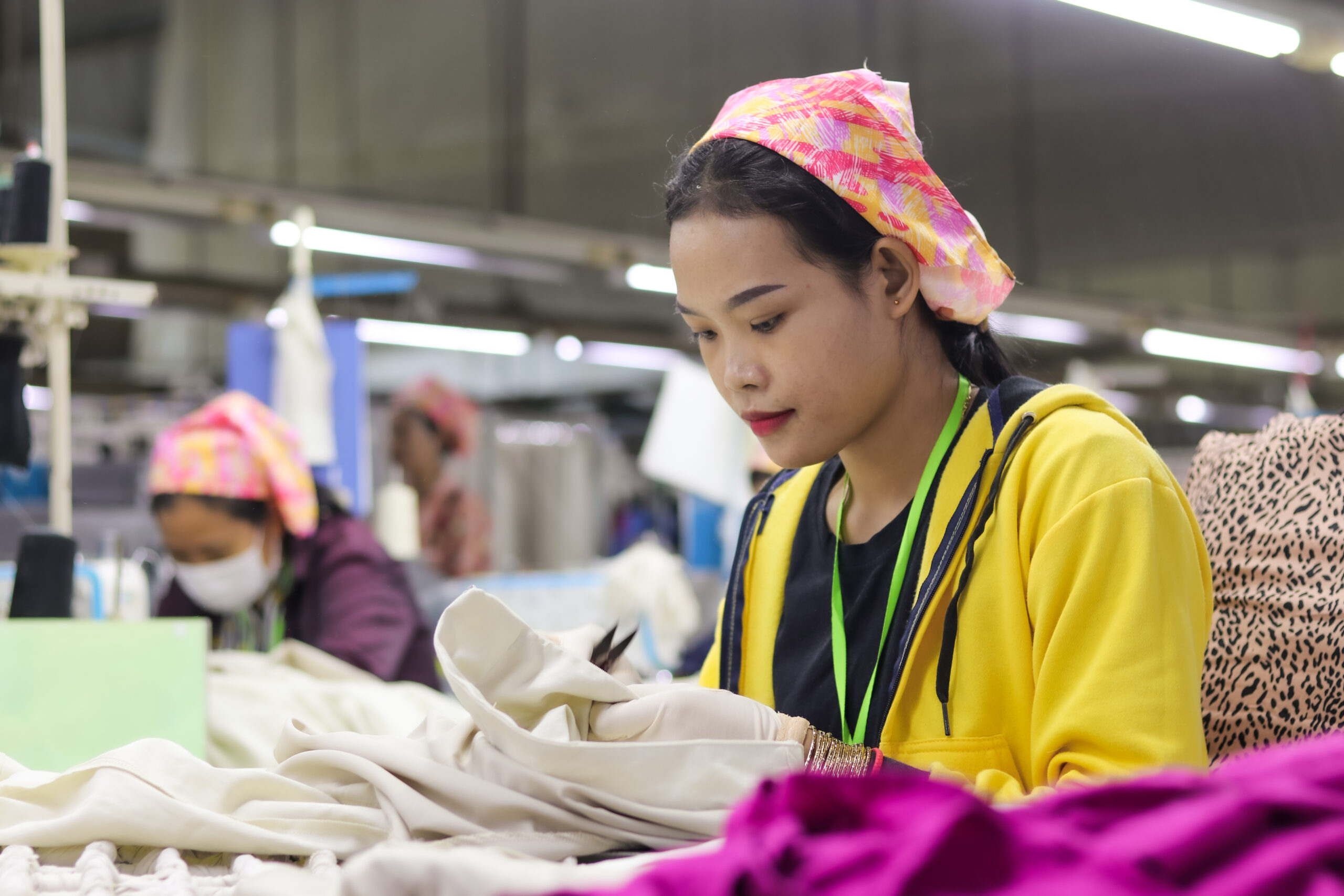Sewing for a Brighter Future (SBF) – Worker Well-being 2.0
CARE’s collaboration with Levi’s Strauss Foundation (LSF) extends back almost 20 years, starting with the Sewing for a Healthy Future (SHF) project (2003-2009) which focused on financial literacy, provided training to peer educators on financial literacy and how to save. From the 2010, the SHF project was scaled up as the Sewing for a Brighter Future (SBF) project to included training on: Sexual Reproductive Health and Rights, Maternal and Newborn Health, Financial Literacy, Nutrition and Hygiene, Sexual Harassment Prevention and Gender Based Violence, HIV/AIDS and STI, National Safety and Security Fund (NSSF), and Basic Mental Health Care Support mainstreaming in the workplace.
About the project
The Sewing for Brighter Future project will support factories to establish committees and factory training teams that will support respect and provide worker awareness sessions on the Worker Well-Being focus areas. Factories will be supported to conduct impact assessments to measure success in terms of business and social indicators. All project activities seek to steer factories to take greater ownership of the project and achieve sustainability by:
-
Building inclusive Worker-Management Teams that use strategic planning, capacity building, and management training to increase factory commitment and collaboration.
-
Worker-Management Teams identify well-being needs within the focus areas of Gender Equity, Workplace Environment, and Policies and Systems.
-
Worker-Management Teams delivering effective action within the focus areas.
-
Supporting factories in monitoring and evaluation activities to track key outcomes and indicators for continuous improvement.
The ultimate long-term goal is that Worker Well-Being 2.0 becomes the way that business is done at all levels, which should also push factories towards becoming “model factories”. In terms of workers’ well-being, this will mean happier, healthier, and more productive workers.
Objective: To improve the health and well-being of factory workers in Levi Strauss’ strategic factories.
-
Achieve ownership of a Worker Well-Being (WWB) strategy and activities by suppliers, through an inclusive worker-management team.
-
Strengthen existing gender equity, workplace environment and policies and systems, to enable sustainability of the WWB Operational Framework.
-
Raise awareness and improve behaviors of workers in terms of wellbeing, including linkages to essential services through factory-led activities.
Local Partner Implementation:
CARE focuses on supporting, engaging and working with local civil society in order to develop their capacity in a purposeful relationship to achieve significant and lasting change for impact. CARE acknowledges that local implementing partners have local expertise and CARE aims to support this through capacity building on gender, monitoring and evaluation, financial management and good governance. CARE will manage and coordinate this project, while a pre-selected local implementing partner NGO will be the main implementer for the project’s in-factory activities.
Key activities
Sewing for a Brighter Future focuses on a number of key areas including: Improving workers’ sexual, reproductive and maternal health; Improving workers’ nutrition; Promoting financial literacy through a established factory trainer teams, having a mix of both peers and factory management. This involves;
-
Conduct a workshop with vendors to set up the vendor and factories’ strategies that can be linked with LSF’s WWB framework.
-
Conduct planning workshop with factory management to develop annual implementation plan, and refresh on roles and responsibilities of factories, vendors, CARE, and LSF.
-
Provide technical support to vendor/factory focal points for a monitoring and evaluation plan of key outputs and outcomes (both wellbeing and business).
-
Sensitize factory staff at all levels on WWB strategy and plan, including from owner-level to line leaders.
-
Provide management and supervision capacity building to those interacting with workers on a regular basis, including effective communication, stress management, and gender.
-
Orient factories to “Managing Health at the Workplace” guidebook and tools, supporting factory to make plans to fill gaps and improve management of infirmaries.
-
Provide factory training teams with refresher training depending on focus areas and planned activities of the factories.
-
Support factories to map services and resources and integrate relevant resources into WWB
-
Conduct supportive coaching for factory-level activities bi-monthly to ensure high quality of worker engagement through factory training teams.
Project Approach
The goal of the project is implementing the updated WWB in 100% of the Levi Strauss supply factories, focusing on:
-
Worker well-being in the workplace.
-
Improved worker-manager cooperation and communication.
-
Prioritized programs and investments within the focus areas of gender equity, workplace environment, and policies and systems.
-
Reassessing partnership with factories to improve purchasing practices, which are shown to have a direct impact on the well-being of workers.
-
Support suppliers in improving worker wages.

